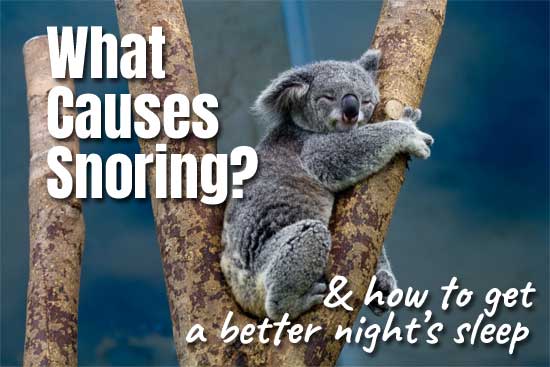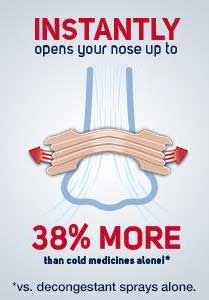Understanding what causes snoring can help us better know how to stop it. There are several reasons why snoring can start, so let’s take a look.

How to Stop Snoring by Avoiding 3 Common Problems:
According to MedlinePlus.gov, the snoring sound occurs when our breathing is blocked while we are asleep. Many times, people can stop snoring by losing weight, minimizing alcohol consumption or not sleeping on their backs.
First, try sleeping on your side and see if that helps. Alternatively, some back sleepers find that wedge pillows help. This snoring solution can help by slightly elevating the head and neck, and therefore opening up otherwise blocked airways.
Dr Josh Axe discusses a number of reasons why we snore, plus 11 natural remedies. For example, using essential oils, taking vitamin C, trying a humidifier, using oral appliances or doing tongue exercises.
Stop Snoring Through the Mouth by Becoming a Nose Breather:
If you have already addressed these issues, or they are not causing the problem, you might be a mouth breather. Some snorers have found relief simply by training themselves to become nose breathers at night. Interestingly, they can do this with inexpensive $10 mouth tape.
If you’ve ever spent the night with someone who snores, you’ve probably noticed that they breathe through their mouth. In many cases, loud, chronic snorers have their mouth wide open. Changing into a nose breather is not only good for better sleeping, but also for a healthier lifestyle.
Snoring and Sleep Apnea:
That said, sleep apnea could be culprit. Obstructive sleep apnea occurs when you stop breathing, and it actually becomes more common later in life. In fact, this disorder can lead to a heart attack and stroke, among other things. Therefore, check with a specialist first.
Plus, the UCLA Sleep Center reports that females are more susceptible to sleep apnea after menopause. They think that this is likely due to loss of the hormone estrogen.
In the video below, Dr Steven Lin explains the symptoms to watch for. In addition, on his site he suggests that Vitamin D could actually cure snoring and sleep apnea.
In fact, he states that, “Vitamin D deficiency has been linked to a number of chronic illnesses including immune system dysfunction, infertility, endocrine disorders, and autoimmune conditions.”
Can Food Cause Snoring?
According to Medical Daily, food allergies like milk lactose can cause nasal passages to swell. Avoid certain types of food, and your sleep may instantly improve.
On the other hand, some foods such as tea can assist with decongestion. In addition, honey can help relax the throat, since it acts as an anti-inflammatory.
 Sinus congestion can also cause snoring, says Consumer Reports. Whether you suffer from seasonal colds or allergies, you might want to consider a nose piece or nasal strips.
Sinus congestion can also cause snoring, says Consumer Reports. Whether you suffer from seasonal colds or allergies, you might want to consider a nose piece or nasal strips.
These cheap devices simply open up nasal passageways, making it easier to breath, and therefore quieting the snoring. If you only have occasional snoring, like when you’re sick, this can provide an easy solution.
By the way, these nasal dilators can help stop nasal snoring (nose snoring) too. If you snore through the nose, these might help.
Think your snoring doesn’t bother you? Think again.
Your obstructed airways can disrupt your sleep patterns all night long. Upon waking, many snorers feel tired and groggy, have a dry mouth and some even experience headaches.
Generally, snoring gets worse and louder in adults as we age. In fact, sleep disorder statistics are higher than you might think. Chronic snoring is not something we want to take lightly, especially if we can prevent it with DIY treatments.
More Resources:
- Snoring in Newborns Babies can be noisy breathers and often grow out of it by the time they are toddlers. Get tips on minimizing noisy breathing and when to look into further testing.
- Cat Snoring: Is it normal? Plus, how to stop heavy breathing and non-medical snoring solutions.
- Stop Snoring in Dogs Potential problems and how to fix them.
